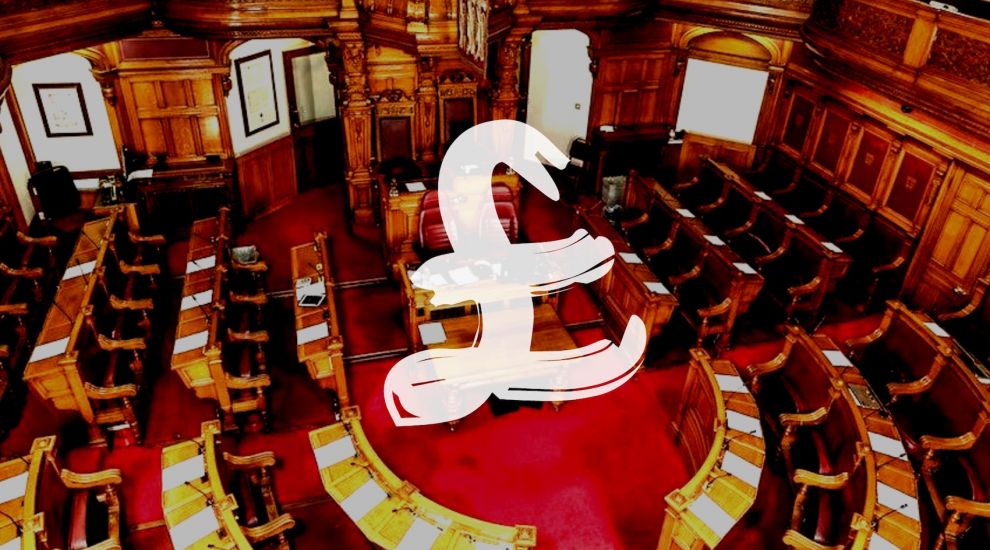


New States Members will be paid £50,000 a year, regardless of whether they are Chief Minister or a backbencher without portfolio... and did you know serving Members unsuccessful at election are entitled to redundancy pay?
They will also be able to pay into a contributory pension scheme, get a parking permit for when on official business and, like any self-employed islander, be able to claim a tax rebate for office equipment and other personal expenses.
Here, Express takes a closer look at what Members get...
Pay
Last year, States Members rejected a recommendation from the now-disbanded States Members’ Renumeration Review Body, that politicians should be paid differently depending on their role.
A 2019 report by the pay body suggested differential pay – proposing that the Chief Minister should be paid an extra £15,000 a year, and Ministers, along with the Chair of the Scrutiny Liaison Committee, should get an additional £7,500 annually.
But that was thrown out last June by 25 votes to 18, with most of those 18 made up of sitting ministers.
So all politicians are paid the same, which will remain for the next cohort.
Current pay is just over £48,000, which has risen incrementally from the £46,600 that Members were paid from 2014 until last year.
The next Assembly of States Members will each be paid £50,000 per annum.
States Members are also officially self-employed, so they must pay both employees and employers’ Social Security contributions.
Like all self-employed, they are entitled to compensation for tax paid on the employers’ side, which equates to around £150 a month.
The standing States Members’ Renumeration Review Body, set up in 2004, has since been replaced with a rolling pay reviewer, which could be an individual or group of people, which will be set up in the next 15 months.
Pay will continue to rise incrementally based on an index established by the new reviewer.
States Members may claim income tax relief for office and similar personal expenses incurred in discharging their role as a Member; by convention, the Comptroller of Taxes automatically accepts such claims up to £3,650 a year.
Members may apply for a free permit, enabling them to park in any States public car park, for their sole use if on official duties.
Since 2000, States Members have had the choice to pay into a contributory pension scheme, but it is not the same as the Public Employees’ Pension Fund that is available to civil servants.
The States Members’ scheme, which is run by Rossborough, is optional and each Member can choose their level of contribution. The employer also contributes, slightly more than the employee.
Take up of the scheme in 2020 was higher than first forecast and extra funding was pumped in in the 2022 Government Plan
Since 2005, States Members have been entitled to one month’s salary as a “severance payment” when leaving the Assembly.
The entitlement was therefore in place for the elections of 2008, 2011, 2014 and 2018, as well as two elections for Constable that took place in 2006 and 2007.
These payments incorporated one month of salary regardless of how long the retiring Member had sat in the States; and all Members were entitled to receive it upon their departure from the States, regardless of whether or not they had stood for election.
In 2019, the States Members’ Renumeration Review Body recommended changes for next week’s election, which were accepted by the Assembly.
From this election, any sitting Member who stands unsuccessfully for re-election is entitled to one month’s basic remuneration per four years’ continuous service, subject to a minimum of two years’ service and pro-rated as necessary.
One month’s salary in this context will be £4,166.67, in line with the £50,000 salary for elected States Members.
This means that a Member serving the full four years of the last term, who stands but it unsuccessful, will be paid £4,166.67 ‘redundancy’, which is in line with Jersey employment law.
Someone serving eight years will be paid £8,333.34, 12 years: £12,500, 14 years: £14,833 etc.
As stated, redundancy pay only applied to those who stand and are unsuccessful - Members who have decided to retire from political life are not eligible.
The full Election Disassembled playlist, your essential pre-election listening...
Subscribe to Bailiwick Podcasts on Spotify, Apple Podcasts, Deezer or Whooshkaa.
Comments
Comments on this story express the views of the commentator only, not Bailiwick Publishing. We are unable to guarantee the accuracy of any of those comments.